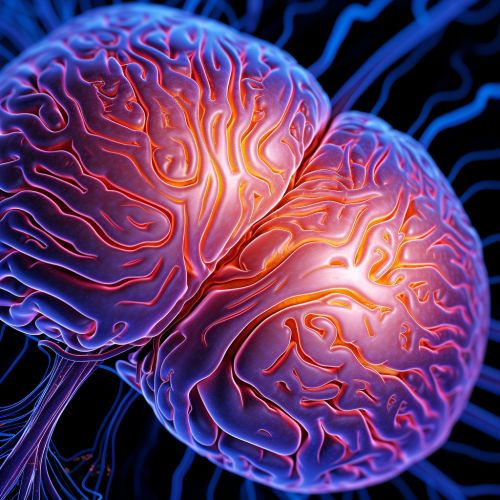Memory Consolidation
Introduction
Memory consolidation is a category of processes that stabilize a memory trace after its initial acquisition. Consolidation is distinguished into two specific processes, synaptic consolidation, which is synonymous with late-phase long-term potentiation, and systems consolidation, where hippocampus-dependent memories become independent of the hippocampus over a period of weeks to years. Recently, a third process has become the focus of research, reconsolidation, in which previously-consolidated memories can become destabilized when recalled and must undergo consolidation again.


Synaptic Consolidation
Synaptic consolidation takes place within the first few hours after learning or memory acquisition. This process involves the strengthening of the synaptic transmission which occurs between neurons. This strengthening leads to long-term potentiation (LTP), a long-lasting increase in signal transmission between two neurons. The molecular processes involved in synaptic consolidation are thought to involve the activation of gene expression and new protein synthesis. These processes are facilitated by signaling molecules such as protein kinase A, CREB (cAMP response element-binding protein), and zif268.
Systems Consolidation
Systems consolidation is a process that involves the gradual reorganization of the circuits of the brain that are involved in memory. This reorganization process is thought to involve the cortical and hippocampal regions of the brain. The standard model of systems consolidation proposes that memories are temporarily stored in the hippocampus before being consolidated to a more permanent cortical storage system. However, this model has been challenged by multiple lines of evidence showing that the hippocampus retains a more permanent role in memory storage.
Reconsolidation
Reconsolidation is the process that occurs when a memory is recalled, becoming plastic, before being consolidated again. A memory is initially 'labile' before being 'consolidated' to a stable state. However, upon reactivation or recall, the memory again becomes 'labile', undergoing a process of re-stabilization, known as reconsolidation. This process of reconsolidation can be manipulated to enhance or impair memory.
Role of Sleep in Memory Consolidation
Sleep plays a significant role in the consolidation of memory. It has been widely shown that sleep facilitates the consolidation of newly formed memories in humans. Sleep deprivation studies have shown that lack of sleep prevents memory consolidation and that memories are consolidated better during sleep than during waking hours. The exact mechanisms of how sleep aids memory consolidation are not fully understood, but several theories exist, including the synaptic homeostasis hypothesis and the involvement of specific sleep stages in different types of memory consolidation.
Clinical Implications of Memory Consolidation
Understanding the processes of memory consolidation has important clinical implications, particularly in the fields of psychiatry and neurology. Impairments in memory consolidation processes are thought to underlie various memory disorders, such as Alzheimer's disease, and may also play a role in conditions such as post-traumatic stress disorder (PTSD) and other anxiety disorders. Furthermore, enhancing memory consolidation processes may have potential therapeutic benefits in these conditions.
